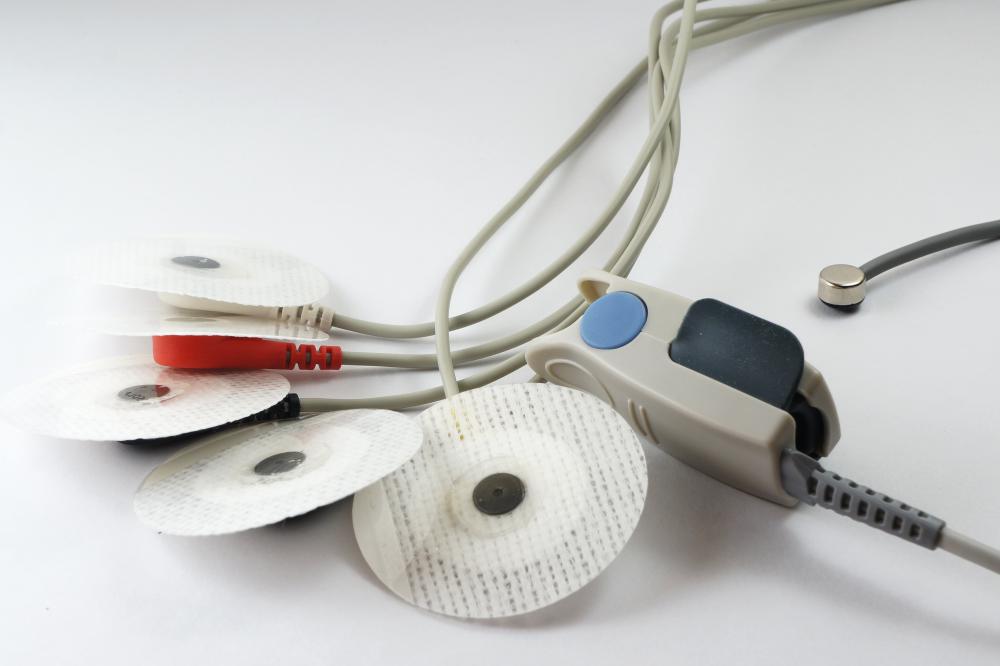At WiseGEEK, we're committed to delivering accurate, trustworthy information. Our expert-authored content is rigorously fact-checked and sourced from credible authorities. Discover how we uphold the highest standards in providing you with reliable knowledge.
In Cardiology, what is a QT Interval?
The QT interval is an electrical measurement of certain aspects of heart functioning. It is seen on an electrocardiogram or EKG, and is a measurement of a process called repolarization. In repolarization, the heart has a single contraction, which is followed by the ventricles receiving new blood. The whole process, when measured on an EKG, is the QT interval. This interval is exceptionally important because a condition where repolarization takes much longer than average, called long QT syndrome, may cause dangerously rapid arrythmias; it is associated with sudden death, especially among adolescents and young adult athletes. Even a slightly longer interval that does not represent the syndrome is important to note because it may contraindicate the use of certain medications that may lengthen the interval.
Those trying to understand the QT interval may mistakenly think that repolarization is principally influenced by heart formation. This is not the case. The interval is due to electrical signals in the heart’s ventricles. These are the two bottom chambers of the heart and they can have perfect shape and form but still have errors in the way they electrically transmit information to the heart. When there are errors, repolarization time can be longer than average. Some people are born with a predilection for a long QT syndrome, but others can acquire it later in life.

Medical research has identified numerous medications that may alter the QT intervals in some individuals. The alteration might create slightly longer repolarization or it could induce long QT syndrome. Although this is not an exhaustive list, some medications that may prolong the QT interval include albuterol, Adderall®, Lexapro®, Geodon®, Benadryl®, Paxil®, Prozac®, Celexa®, fluconazole, ketoconazole, and Mexitil®. In surveying this list it’s easy to see that these medications treat a wide variety of conditions. They are used to treat attention deficit disorder, allergies, depression, fungal infections, bacterial infections, and heart rhythm disorders. The majority of these medications listed here and others that are not mentioned are antidepressants or other behavioral drugs.

It’s important to note that these medications will not necessarily create long QT syndrome or even lengthen the QT interval. Those who have long QT syndrome may need to avoid these medications so that they do not worsen their condition. Most people can use these drugs safely, although a few medications like Geodon® require an EKG prior to use, and even slight elongation of the QT interval would contraindicate its use.

For the medical layperson, an EKG is difficult to understand, but knowing a little bit about the QT interval makes good sense. It’s certainly something people can ask their physicians about when they get an EKG. Since there are so many common drugs that may elongate repolarization, it may be wise to ask physicians if the QT interval on an EKG falls within normal limits.
AS FEATURED ON:
AS FEATURED ON:

















Discuss this Article
Post your comments